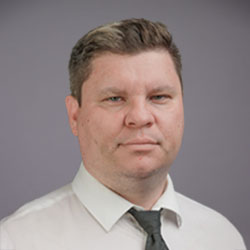Stages
- First StageSeptember 01 – November 28, 2025Registration of participants
Uploading the portfolio to the system by the participants
Entering test - Second StageNovember 28 – December 30, 2025Online testsDetermination of participants for the third round on the doctoral track (analogous to PhD)
- Third StageJanuary 12 – February 26, 2026Online interview with a research supervisor
Determination of prize-winners and winners on the doctoral track (analogous to PhD)
Award winners
Participants who have successfully passed the two rounds and whose overall score puts them in the top 25% shall be deemed “Award Winners”.
Sign up as a participant
Participation in the Open Doors Russian Scholarship Project
is a unique opportunity for early admission
to a tuition-free Bachelor's, Master's or PhD program
at one of the leading universities in Russia
Academic advisers
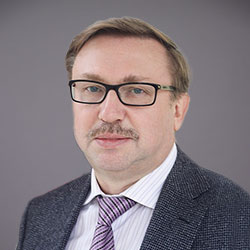
Aleksandr N. Chusov
Associate Professor of Higher School of Hydraulic Engineering and Power Engineering
PhD in Technical Sciences
Olympiad Profiles
Earth & Environmental Sciences for Sustainability
Urbanizm & Civil Engineering
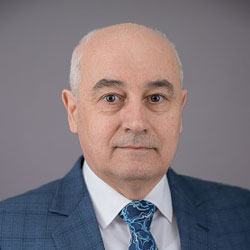
Aleksandr V. Babkin
Professor of Graduate School of Industrial Economics
Scientific Adviser of «Digital Economy of Industry» Research Lab
Doctor of Economics
Olympiad Profiles
Business & Management
Economics & Econometrics
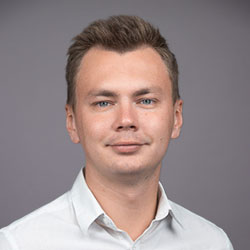
Aleksei M. Gintciak
Associate Professor of Higher School of Project and Innovations in Industry
Head of Laboratory «Digital Modelling of Industrial Systems»
PhD in Technical Sciences
Olympiad Profiles
Computer & Data Science
Applied Mathematics & Artificial Intelligence
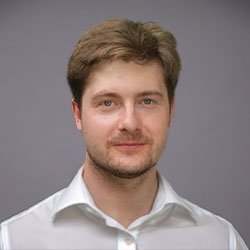
Alexander S. Timin
Associate Professor — Graduate School of Biomedical Systems and Technologies
Doctor of Biological Sciences
Olympiad Profiles
Biology & Biotechnology

Alexey D. Vedyaykin
Associate Professor of Higher School of Biomedical Systems and Technologies
PhD in Biological Sciences
Olympiad Profiles
Biology & Biotechnology
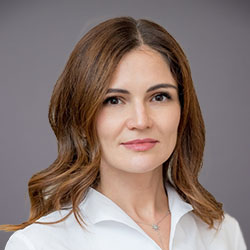
Anastasia I. Levina
Professor of Higher School of Business Engineering
Doctor of Economic Sciences
Olympiad Profiles
Economics & Econometrics
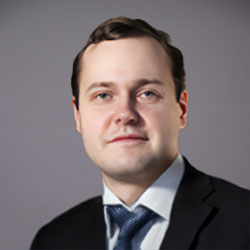
Andrey A. Zaytsev
Professor of Higher School of Engineering and Economics
Doctor of Economic Sciences
Olympiad Profiles
Economics & Econometrics

Angi E. Skhvediani
Associate Professor of Higher School of Engineering and Economics
Head of Research Lab «System Dynamics»
Leading Analyst
PhD in Economics
Olympiad Profiles
Economics & Econometrics
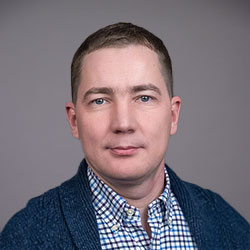
Anton A. Naumov
Associate Professor of Higher School of Physics and Technology of Materials
Leading researcher of the Laboratory of Lightweight Materials and Structures
Doctor of Technical Sciences
Olympiad Profiles
Chemistry & Materials Science
Engineering & Technology
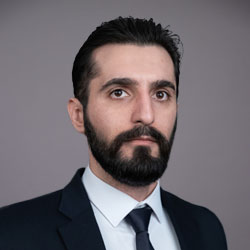
Basati P. Mehdi
Associate professor of Higher School of Power Engineering
PhD in Technical Sciences
Olympiad Profiles
Engineering & Technology
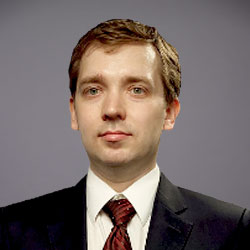
Dmitry A. Sharapov
Associate Professor of Higher School of Hydraulic Engineering and Power Engineering
Head of the Laboratory of Fundamental Principles of Ice Engineering Research
PhD in Technical Science
Olympiad Profiles
Engineering & Technology
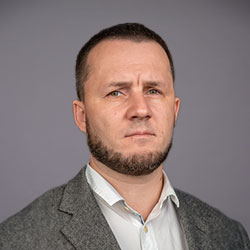
Dmitry V. Efanov
Professor of Higher School of Transport
Full member of the International Academy of Transport
IEEE Member
Doctor of Technical Sciences
Olympiad Profiles
Engineering & Technology
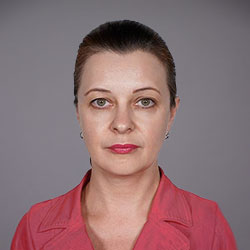
Elena V. Korchagina
Professor of Graduate School of Service and Trade
Doctor of Economic Sciences
Olympiad Profiles
Economics & Econometrics
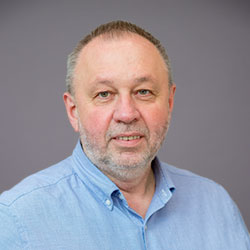
Igor V. Ilin
Head of the Higher School of Business Engineering
Head of the Laboratory «Interdisciplinary Research and Education on Technological and Economic Problems of Energy Transition (CIRETEC-GT)»
Doctor of Economic Sciences
Olympiad Profiles
Economics & Econometrics

Konstantin K. Semenov
Associate Professor of Higher School of Computer Technology and Information Systems
PhD in Technical Sciences
Olympiad Profiles
Engineering & Technology
Computer & Data Science

Ksenia I. Strelets
Associate Professor of Higher School of Civil Engineering and Road Construction
Director of Short-Term Professional Programs of Civil Engineering Institute
PhD of Technical Science
Olympiad Profiles
Urbanizm & Civil Engineering
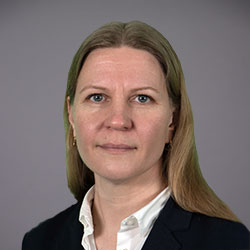
Kseniya N. Kikkas
Associate Professor of Higher School of Industrial Management
PhD in Economics
Olympiad Profiles
Business & Management
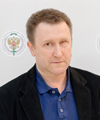
Leonid B. Liokumovich
Professor of Higher School of Applied Physics and Space Technologies
Doctor of Physical and Mathematical Sciences
Olympiad Profiles
Physical Sciences & Technology
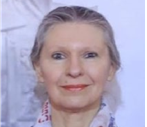
Liudmila A. Guzikova
Professor of Higher School of Engineering and Economics
Doctor of Economic Sciences
Olympiad Profiles
Economics & Econometrics
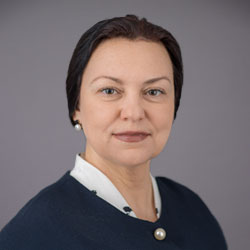
Marina V. Gravit
Associate Professor of Higher School of Civil Engineering and Road Construction
PhD in Technical Sciences
Olympiad Profiles
Engineering & Technology
Urbanizm & Civil Engineering
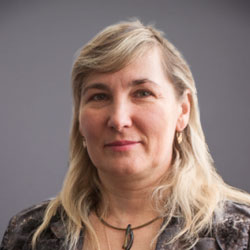
Mayya V. Uspenskaya
Professor of Higher School of Civil and Road Construction Engineering
PhD in Physics; Doctor of Technical Sciences
Olympiad Profiles
Earth & Environmental Sciences for Sustainability
Urbanizm & Civil Engineering
Chemistry & Materials Science
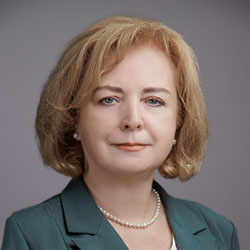
Nadezhda T. Zhilinskaya
Associate professor of Graduate school of biotechnology and food science
PhD in Biological Sciences
Olympiad Profiles
Biology & Biotechnology
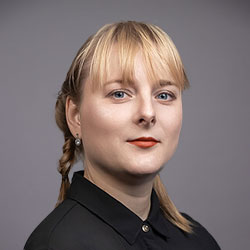
Natalia E. Morozova
Associate Professor of Graduate School of Biotechnology and Food Science
Member of research and Innovation Complex «Nanobiotechnologies»
PhD in Biological Sciences
Olympiad Profiles
Biology & Biotechnology
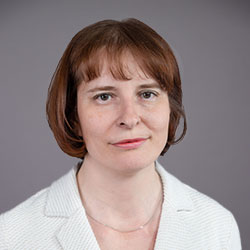
Natalya G. Victorova
Professor of Higher School of Engineering and Economics
Doctor of Economic Sciences
Olympiad Profiles
Economics & Econometrics
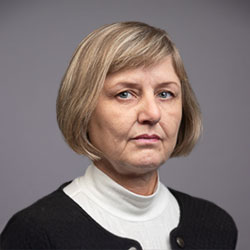
Natalya V. Semenova
Professor of Higher School of Linguistics and Pedagogy
Doctor of Philological Sciences
Olympiad Profiles
Education & Psychology
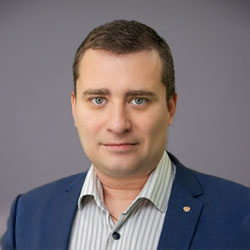
Nikita S. Lukashevich
Associate Professor of Higher School of Production Management
Deputy Director of the Institute of Industrial Management, Economics and Trade
PhD in Economics
Olympiad Profiles
Business & Management
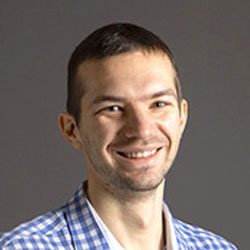
Nikolai A. Ushakov
Professor of Higher School of Applied Physics and Space Technologies
Leading Researcher of Research Laboratory «Fiber Optics»
Doctor of Physical and Mathematical Sciences
Olympiad Profiles
Physical Sciences & Technology
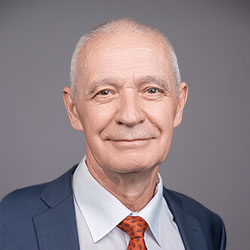
Nikolai I. Vatin
Director — Scientific and Technological Complex «Digital Engineering in Construction»
Professor, Doctor of Engineering Sciences
Olympiad Profiles
Engineering & Technology
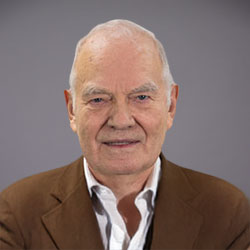
Nikolay I. Didenko
Professor of Higher School of Business Engineering
Doctor of Economic Sciences
Olympiad Profiles
Economics & Econometrics
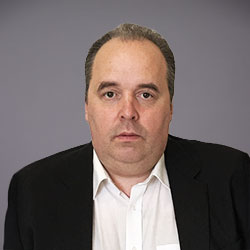
Oleg N. Stolyarov
Associate Professor of Higher School of Hydraulic Engineering and Energy Construction
Doctor of Technical Sciences
Olympiad Profiles
Urbanizm & Civil Engineering
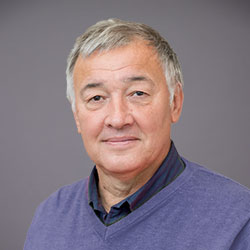
Sergey G. Svetunkov
Professor of Higher School of Business Engineering
Doctor of Economic Sciences
Olympiad Profiles
Economics & Econometrics
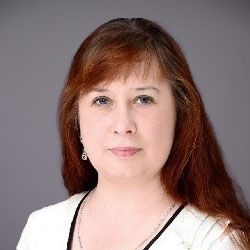
Svetlana Y. Kerpeleva
Associate Professor of Higher School of Automation and Robotic
Head of the Educational Program «Mechatronics and Robotics»
PhD in Technical Sciences
Olympiad Profiles
Engineering & Technology
Chemistry & Materials Science
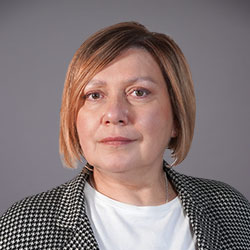
Tatiana L. Kharlamova
Professor of Graduate School of Industrial Management
Doctor of Economic Sciences
Olympiad Profiles
Business & Management
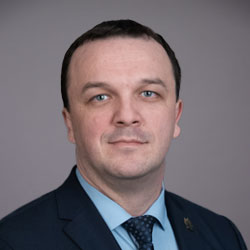
Viktor V. Barskov
Director — Institute of Energy
Leading Researcher — Laboratory «Modeling of technological processes and design of power equipment»
Doctor of Technical Science
Olympiad Profiles
Engineering & Technology
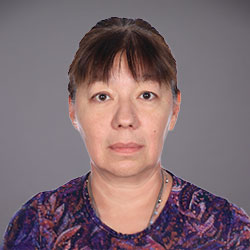
Viktoriia M. Kapralova
Associate Professor — Higher School of Electronics and Micro-Electro-Mechanical Systems
Candidate of Science in Physics and Maths
Olympiad Profiles
Chemistry & Materials Science
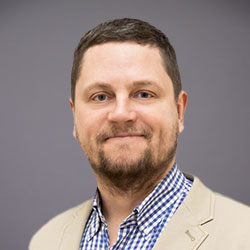
Vladimir V. Konyushkov
Associate Professor of Higher School of Hydraulic Engineering and Power Engineering
PhD in Technical Sciences
Olympiad Profiles
Engineering & Technology
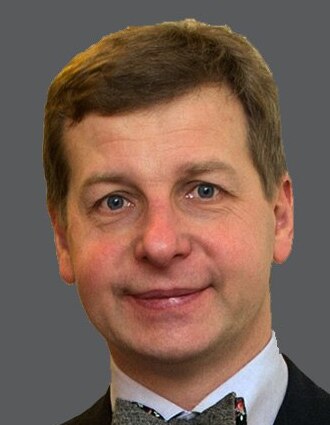
Vyacheslav V. Potekhin
Associate Professor of Higher School of Management of Cyber-physical Systems
Director of Northwestern Interuniversity Regional Educational and Scientific Center «Polytech-Cyberphysics»
PhD of Technical Sciences
Olympiad Profiles
Computer & Data Science
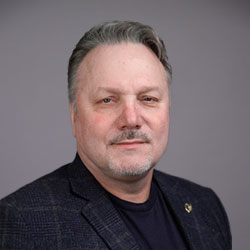
Yuri G. Lazarev
Director of the Higher School of Industrial and Civil Engineering and Road Construction
Full member of the RAT (Russian Academy of Transport)
Doctor of Technical Sciences
Olympiad Profiles
Urbanizm & Civil Engineering
Business & Management
Economics & Econometrics
Biology & Biotechnology
1.5. Biological Sciences
2.7. Biotechnology
Engineering & Technology
2.1. Civil Engineering and Architecture
2.2. Electronics, Photonics, Instrumentation and Communications
2.3. Information Technologies and Telecommunications
2.4. Power Engineering and Electrical Engineering
2.5. Mechanical Engineering
2.6. Chemical Technologies, Materials Sciences, Metallurgy
Computer & Data Science
2.2. Electronics, Photonics, Instrumentation and Communications
2.3. Information Technologies and Telecommunications
Applied Mathematics & Artificial Intelligence
2.3. Information Technologies and Telecommunications
Education & Psychology
Physical Sciences & Technology
1.3. Physical Sciences
- 1.3.19. Laser Physics
- 1.3.4 Radiophysics
- 1.3.5. Physical Electronics
Chemistry & Materials Science
2.5. Mechanical Engineering
2.6. Chemical Technologies, Materials Sciences, Metallurgy
Earth & Environmental Sciences for Sustainability
1.6. Earth & Environmental Sciences
Urbanizm & Civil Engineering
1.6. Earth & Environmental Sciences
2.1. Civil Engineering and Architecture
